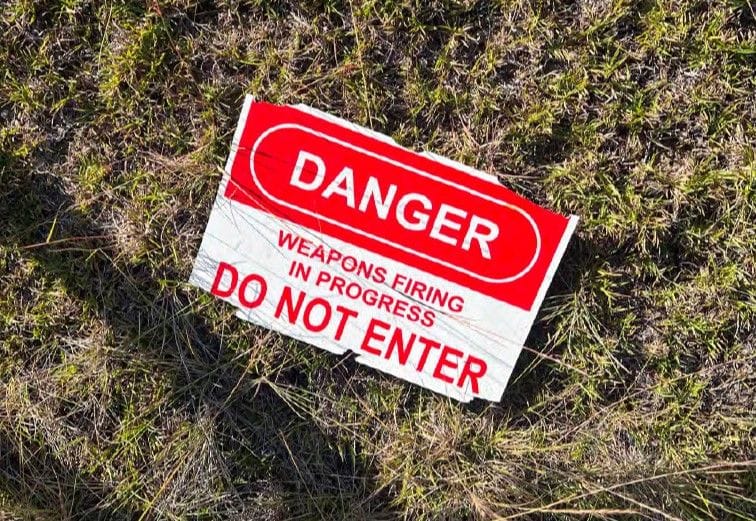$2.75 Million Settlement in Ordnance Explosion Case at Florida Military Base
A tragic accident sparks a legal battle challenging federal immunity, revealing deep flaws in safety oversight and the power of expert advocacy.
Updated on
In a devastating incident at the Naval School for Explosive Ordnance Disposal at Eglin Air Force Base, a routine day on the job for civilian medic Wayne Fabozzi turned into a life-altering tragedy. Fabozzi, a 70-year-old contractor working for the Navy, was standing in a designated “Safe Zone” when he picked up what he believed was harmless debris from the range. This practice, which had been casually encouraged by the Navy to create commemorative plaques, ended in disaster when the item—a live ordnance fuse—detonated shortly after being returned to him by a Navy instructor.
The explosion resulted in the loss of Fabozzi’s left arm, several fingers, and left him with a mild traumatic brain injury. His wife, Wendy Fabozzi, stood by as the couple navigated the aftermath of a preventable catastrophe. They turned to National Trial Law to hold the federal government accountable under the Federal Tort Claims Act (FTCA).
Beating the Government’s Defense
The federal government launched an aggressive defense strategy, filing six separate motions to dismiss the case. Central to their argument was the “discretionary function exception,” a legal doctrine that often shields the government from liability when federal employees exercise discretion in their duties. National Trial Law, however, successfully argued that this was not a matter of discretion, but rather the result of ignoring explicit, mandatory safety protocols for handling explosive devices.
“This wasn’t your typical Federal Tort Claims Act case,” said Jamal Alsaffar, a partner at National Trial Law. “The government tried to hide behind layers of federal law... But we showed that the Navy caused this terrible event because they ignored several mandatory safety procedures on handling explosive devices”.
Additionally, the government attempted to invoke statutory employer immunity, contending that Fabozzi’s employment status limited the ability to sue. National Trial Law dismantled this argument, demonstrating that the Navy failed to meet the legal criteria under Florida law.
Expert Institute’s Role
A critical turning point in the case came with the involvement of Expert Institute. National Trial Law worked with Expert Institute to identify and retain a specialized expert witness—an explosive ordnance professional with over 40 years of experience. His expert analysis confirmed that the object Fabozzi handled was an active ordnance fuse that should have been removed from a zone deemed safe for civilians.
The government neither challenged the expert’s qualifications nor offered a rebuttal witness, underscoring the strength and credibility of the analysis. This unrefuted testimony played a vital role in establishing liability and securing a favorable settlement.
The Settlement and What It Means
The litigation concluded with a $2.75 million settlement for the Fabozzis, representing the severe consequences of the Navy’s failure to adhere to critical safety protocols. The outcome reinforces that even federal entities must be held accountable when negligence results in serious injury.
“This case is a clear example of how dangerous it can be when the government cuts corners on safety and expects no one to hold them accountable,” said Tom Jacob, another partner at National Trial Law. “We’re proud of the result for this family”.
Law Firms Involved
The plaintiffs were represented by National Trial Law, a firm with a national reputation for excellence in high-stakes FTCA litigation.
What Comes Next
While the settlement brings legal closure, the broader implications of this case raise ongoing concerns about safety oversight in military environments accessible to civilians. The collaboration between National Trial Law and The Expert Institute highlights how strategic expert partnerships can be instrumental in overcoming complex governmental defenses.
As National Trial Law continues to advocate for those injured by government negligence, this case serves as a reminder that accountability must extend to every level—including the highest echelons of federal authority.


